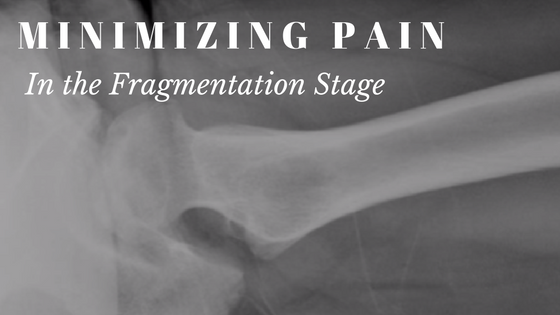Tips on How to Deal with Pain During the Fragmentation Stage of Perthes Disease
Pain is one of the most common presenting complaints in early Legg-Calve-Perthes disease (along with limp). Pain typically is felt in the groin, side of the hip area, thigh, or even the knee. In the early stages of LCPD pain is typically caused by synovitis (inflammation of the joint lining), extra fluid in the joint, and/or muscle spasm. Pain severity can be quite significant but usually waxes and wanes and rarely is it so bad that it prevents walking altogether. After the initial necrosis stage, the hip enters the fragmentation stage. It is during this stage that the hip is most at risk for deforming mechanically. Pain tends to continue through this phase and may be the result of the actual fragmentation process or secondary to synovitis or muscle spasm. As the ball of the hip starts to reform, pain typically starts to resolve. In fact, when x-rays are somewhat
Building and Sharing Knowledge: The Importance of Medical Professionals Attending Conferences
This content is restricted to subscribers
FAQ: Run or Jump?
Why isn’t my child supposed to run or jump? Some children will be recommended to avoid running and jumping activities depending of the severity and stage of their Perthes. The femoral head or ball of the hip joint becomes soft like play dough and can become misshapen. The thought is that the increased forces from
How to Help?
How can I help? There is still a long way to go in understanding and treating Perthes disease, and support and help from all families is important. The various ways to help involve: Enrolling your child in a study and stay in the study. Actively share information about IPSG. Donate to IPSG to support research.
Hip Surgery?
What should I expect if my child has hip surgery involving the bone? This of course depends on the child, the doctor, and the disease. Here are some generalized expectations that can vary widely. The children with osteotomies tend to spend one to three nights in the hospital. They may or may not require a
Suicides related to Perthes?
Are Attention Deficit Disorder, Depression, and Suicide More Common in Patients with Perthes Disease? By Chad Price, MD and Harry Kim, MD The researchers in Sweden found that the prevalence of attention deficit hyperactivity disorder (ADHD), depression, and suicide was 2.5%, 3.7%, and 3.9% in people with Perthes, respectively, in their study published in the
IPSG on Facebook
[custom-facebook-feed carousel=”true”]
Video Archives
How do you choose between nonoperative and operative treatment for Perthes?
What is containment treatment for Perthes disease?
What are the limitations with Perthes and weight bearing?
Why are there such varied treatments of Perthes among doctors?
What are current studies being carried out by IPSG?
Are there any advancements in Perthes treatment?
How frequent are flare-ups in the fragmentation stage? How do you deal with them?
What does the future of Perthes look like?
Why did you join the IPSG?
What are we learning from IPSG?
What is the International Perthes Study Group?
IPSG Website Welcome
IPSG Community Live Stream
No Results Found
The page you requested could not be found. Try refining your search, or use the navigation above to locate the post.






 Subscribe to IPSG's Channel
Subscribe to IPSG's Channel